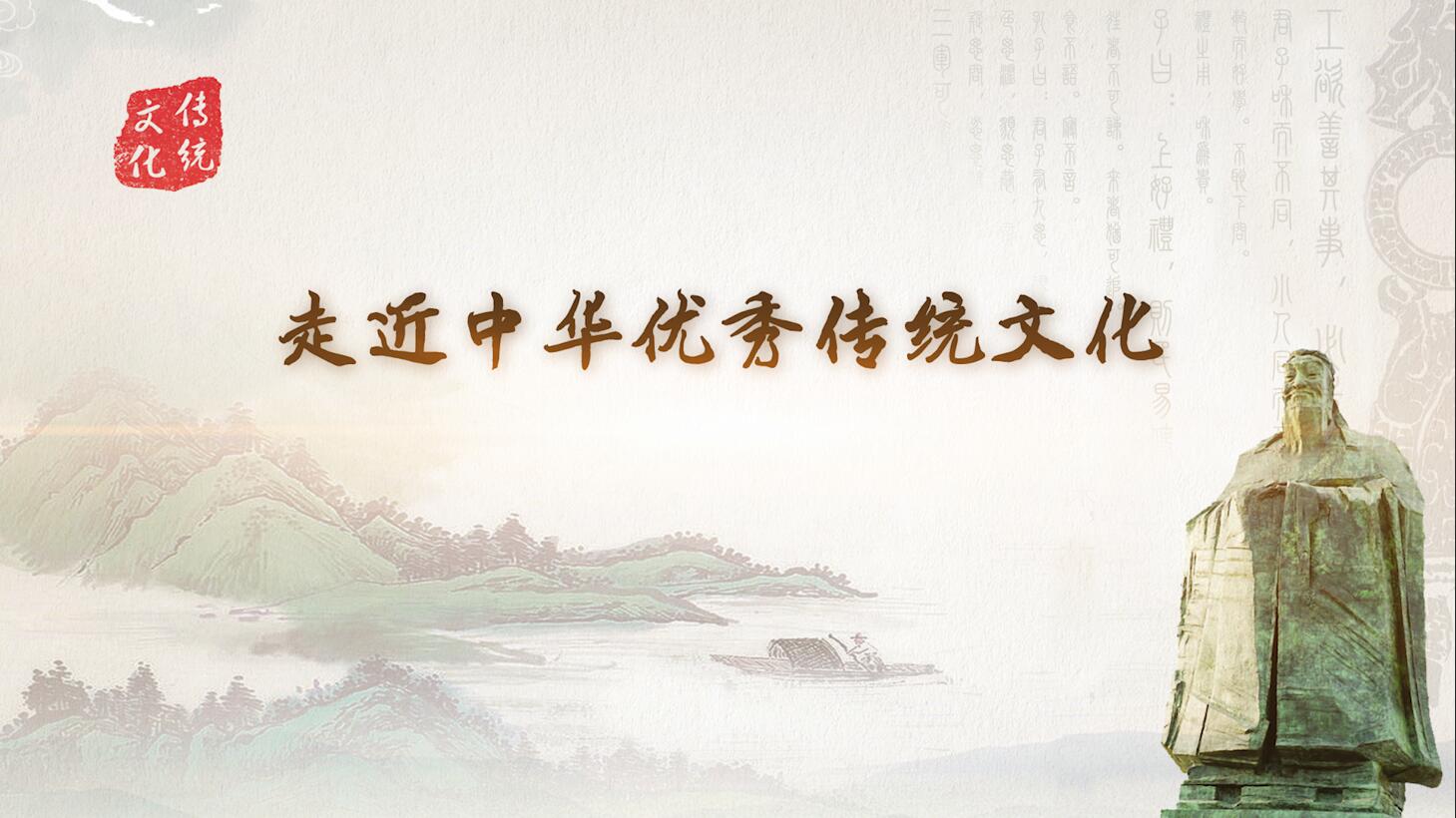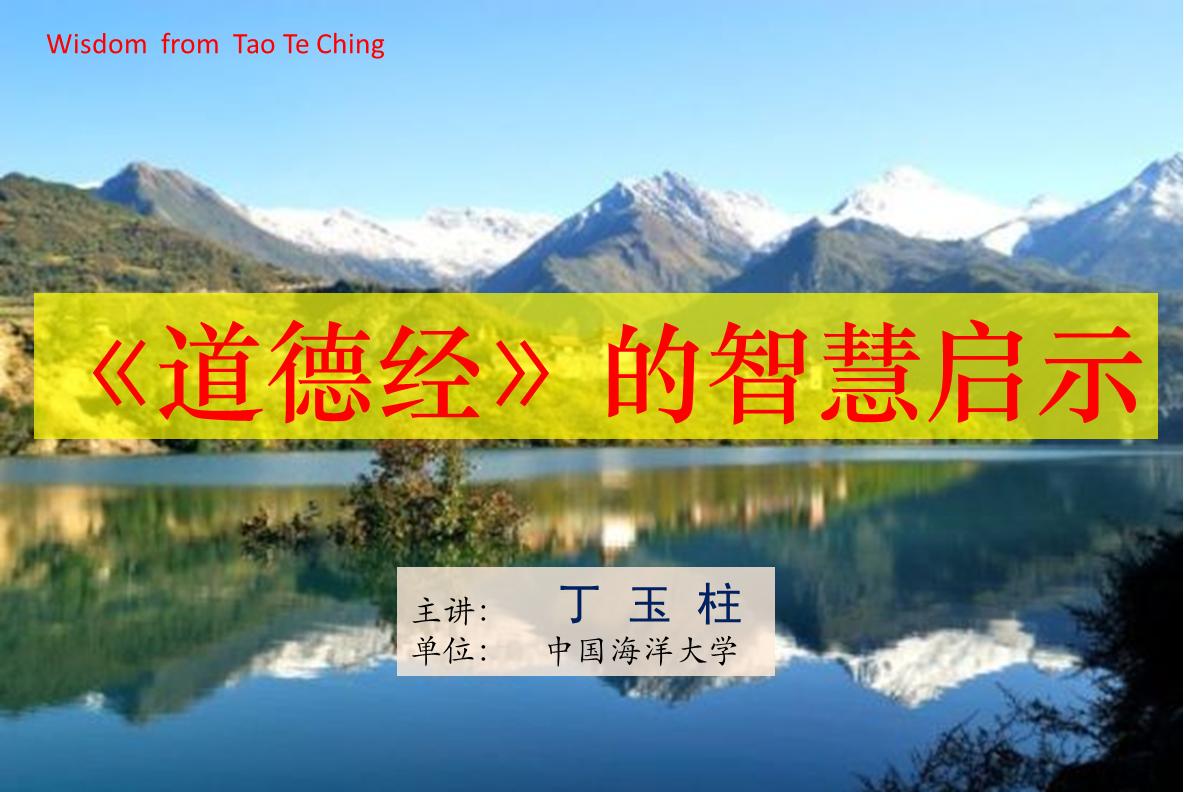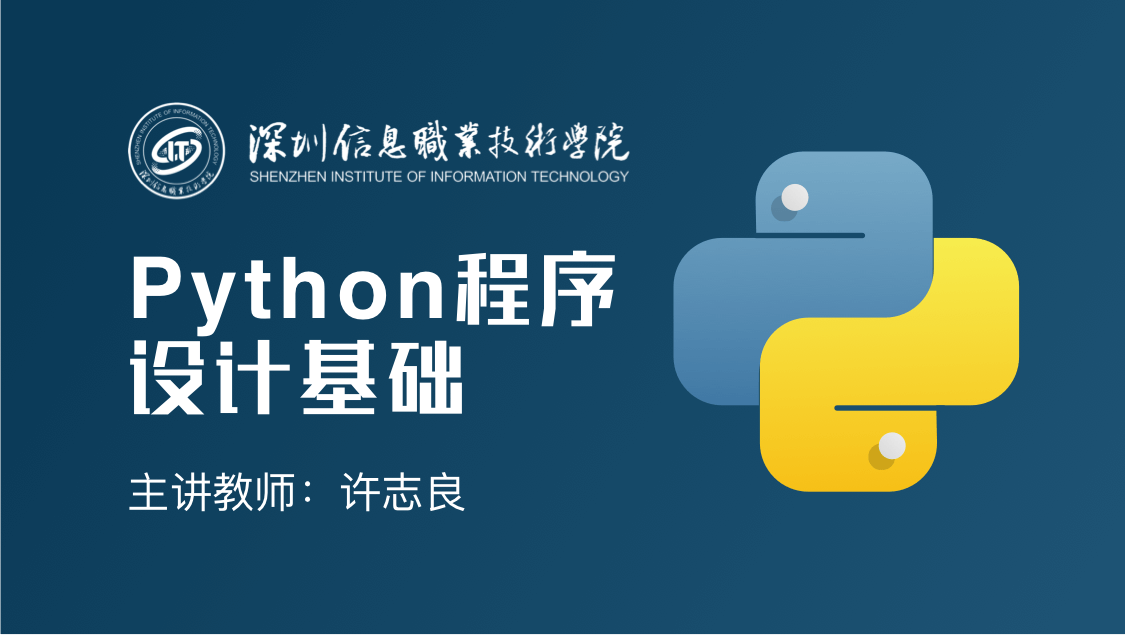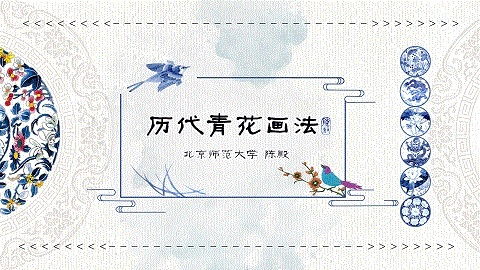
当前课程知识点:庄子寓言及其智慧 > Module 6 On Other Issues 论诸事 > 6.6 Experts' Views on Zhuangzi's Wisdom 庄子智慧专家谈 > 6.6.2 How to critically perceive Zhuangzi’s thought? 如何辩证地理解庄子思想?
我们已经比较熟悉
庄子的寓言
以及其中的庄子思想,
我们要来谈谈如何
批判性地、辨证地看待庄子思想。
首先
我们必须认识到,
庄子不是神人、
仙人,
他只是
诸子百家中的一员,
他也是生活于
人世间的凡人,
所以,他的思想中肯定会有不足之处。
事实上,我们喜欢庄子,
不是说
就把他无限拔高与美化,
这不是正确
学习庄子的态度。
这非常重要,我是很认同的。
早在战国后期,
儒家学派的代表人物荀子
就明确指出庄子思想的弊端.
他认为
庄子过于注重
人与自然的关系,
而忽视了
人与人之间的关系。
庄子注重个性,
看重个人自身的修养,追求的是
自我精神的独立与自足,
这些当然都是非常宝贵的,
但是,没有任何一个人是独自生活在真空当中,
每一个人都处于
各种人际关系网络里,
无视这种人际关系,
只关注自我的世界,
显然并不符合
人类作为群居动物的天然习性。
庄子学生不多,朋友寥寥,
生活穷困潦倒,
应该说
就是他这种思想观点所造成的现实后果。
因此,我认为我们要
肯定庄子思想
对于安顿每个人精神所能起到的积极作用,
但是
在现实生活与人交往,
我们还要学习《论语》,
看看儒家是如何妥善来处理
夫妻、
父子、君臣、
朋友等等关系;
我们还要学习《墨子》,
看看古代的仁人志士
是如何路见不平拔刀相助;
我们还要学习《韩非子》,
看看古人如何直面惨淡的人生,
铿锵有力地提出
自己的治国主张……
其实,如果我们从一个更加宏大的视角来看待庄子,
我们对其理解
会更为充分。
上个世纪50时代,
德国哲学家卡尔 . 雅思贝尔斯
在《历史的起源与目标》一书中
提出了“轴心时代”理论:
(也是“轴心时代”/“轴心时期”,
来自德国“Achsenzeit”)
公元前800至公元前200年之间,
特别是公元前600至公元前300年间,
其发生在北纬30度上下,
也就是北纬25度到35度之间。
这个时期
是人类文明精神的重大突破时期,
在这个时期,
在古希腊、以色列、古印度、中国,
分别出现了
苏格拉底、柏拉图、亚里士多德、
犹太教的先知、
释迦牟尼、
孔子、老子、孟子等伟大的精神导师,
他们提出的思想原则
塑造了不同的文化传统,
影响着
人类的生活方式。
雅思贝尔斯认为
一直靠
轴心时代所产生的思考和创造的一切而生存,
人类每一次新的飞跃
都回顾这一时期,
并被它重燃火焰。
包括《庄子》在内的
诸子百家学说,
正是轴心时代的产物,
它们源源不断地
提供了文化动力,
注入到中华民族的发展中。
我们无妨将其看成一个整体,
只有如此,
我们才能全面、深刻地理解
中华文化的底蕴。
-1.1 Lesson 1 Module Guide 单元导学
--1.1.2 Lesson 1 Module Guide
-1.2 Lesson 2 The Man Named Zhuangzi 庄子其人
--1.2.1 Lesson 2 The Man Named Zhuangzi
--1.2.2 Lesson 2 The Man Named Zhuangzi
-1.3 Lesson 3 The Book of Zhuangzi 庄子其书
--1.3.1 Lesson 3 The Book of Zhuangzi
--1.3.2 Lesson 3 The Book of Zhuangzi
-1.4 Lesson 4 The Language of Zhuangzi 庄子其言
--1.4.1 Lesson 4 The Language of Zhuangzi
--1.4.2 Lesson 4 The Language of Zhuangzi
-1.5 Lesson 5 The Ideal Life of Zhuangzi 庄子其志
--1.5.1 Lesson 5 The Ideal Life of Zhuangzi
--1.5.2 Lesson 5 The Ideal Life of Zhuangzi
-1.6 Experts' Views on Zhuangzi's Wisdom 庄子智慧专家谈
--1.6.1 Is zhuangzi negative in nature? 庄子消极吗?
--Interview Question(1)
--1.6.2 Is zhuangzi still inspiring in today's society? 庄子过时了吗?
--Interview Question(2)
-1.7 Students' Understanding of Zhuangzi's Wisdom 庄子智慧学生说
--1.7.1 Zhuangzi's Spiritual World 庄子的精神世界
--1.7.2 The Development of Zhuangzi's Ideas 庄思想发展
--1.7.3 English Translation of Zhuangzi 庄子的英文翻译
--1.7.4 Introduction of Zhuangzi 庄子生平介绍
--1.7.5 Zhuangzi's Home State 庄子出生国
-2.1 Lesson 1 Module Guide 单元导学
--2.1.1 Lesson 1 Module Guide
-2.2 Lesson 2 On Taking Stock 审时度势
--2.2.1 Lesson 2 On Taking Stock
--2.2.2 Lesson 2 On Taking Stock
-2.3 Lesson 3 On Courage 何谓勇气
--2.3.2 Lesson 3 On Courage
-2.4 Lesson 4 On Contentment 知足常乐
--2.4.1 Lesson 4 On Contentment
--2.4.2 Lesson 4 On Contentment
-2.5 Lesson 5 On Modesty 谦虚谨慎
--2.5.2 Lesson 5 On Modesty
-2.6 Experts' Views on Zhuangzi's Wisdom 庄子智慧专家谈
--2.6.1 What’s the relationship between Zhuangzi and Huizi? 惠子与庄子是何关系?
--Interview Question(1)
--2.6.2 How do we understand the debate in Happy Fish? “鱼之乐”辩什么?
--Interview Question(2)
-2.7 Students' Understanding of Zhuangzi's Wisdom 庄子智慧学生说
--2.7.1 Historical Allusions and Cultural Stories 历史典故及文化故事
--2.7.2 Life Wisdom——Yan Hui Refuses Office 颜回拒官的启示
--2.7.3 On Taking Stock 审时度势候时机
--2.7.4 The Enlightenment of Zhuangzi's Fables 庄子的智慧启迪
-【计分贴3 第2单元】Character analysis
-3.1 Lesson 1 Module Guide 单元导学
--3.1.2 Lesson 1 Module Guide
-3.2 Lesson 2 Essence of Learning 习技要义
--3.2.1 Lesson 2 Essence of Learning
--3.2.2 Lesson 2 Essence of Learning
-3.3 Lesson 3 Importance of Practicing 重在实践
--3.3.1 Lesson 3 Importance of Practicing
--3.3.2 Lesson 3 Importance of Practicing
-3.4 Lesson 4 Internal Factors 内因影响
--3.4.1 Lesson 4 Internal Factors
--3.4.2 Lesson 4 Internal Factors
-3.5 Lesson 5 External Factors 外因作用
--3.5.1 Lesson 5 External Factors
--3.5.2 Lesson 5 External Factors
-3.6 Experts' Views on Zhuangzi's Wisdom 庄子智慧专家谈
--3.6.1 What are the differences between Zhuangzi’s and western fables? 庄子寓言与西方寓言有何异同?
--Interview Question(1)
--3.6.2 How is Zhuangzi’s fable different from Mencius’s and Han Feizi’s? 庄子寓言与孟子、韩非子寓言有何异同?
--Interview Question(2)
-3.7 Students' Understanding of Zhuangzi's Wisdom庄子智慧学生说
--3.7.1 Dongshi Imitated a Beauty Blindly 东施效颦
--3.7.2 The Knife of Cook Ting 庖丁解牛
--3.7.3 The Life of Huizi 惠子生平
--3.7.4 The Skill of Chicken Dissection 自编寓言—剖鸡之技
--3.7.5 Zhuangzi and Huizi 庄子与惠子
-征文赛
-征图赛
-4.1 Lesson 1 Module Guide 单元导学
--4.1.2 Lesson 1 Module Guide
-4.2 Lesson 2 Emphasizing the Soul 思想更重要
--4.2.1 Lesson 2 Emphasizing the Soul
--4.2.2 Lesson 2 Emphasizing the Soul
-4.3 Lesson 3 Pursuing Freedom 追求自由
--4.3.1 Lesson 3 Pursuing Freedom
--4.3.2 Lesson 3 Pursuing Freedom
-4.4 Lesson 4 Respecting the Nature 尊重天性
--4.4.1 Lesson 4 Respecting the Nature
--4.4.2 Lesson 4 Respecting the Nature
-4.5 Lesson 5 Searching for Dao 追求道
--4.5.1 Lesson 5 Searching for Dao
--4.5.2 Lesson 5 Searching for Dao
-4.6 Experts' Views on Zhuangzi's Wisdom 庄子智慧专家谈
--4.6.1 What are the 3 forms of “yan” and their relationships? 何为《庄子》三言及其关系?
--Interview Question(1)
--4.6.2 Why does Zhuangzi sing upon his wife's death? 庄子妻死为何鼓盆而歌?
--Interview Question(2)
-4.7 Students' Understanding of Zhuangzi's Wisdom 庄子智慧学生说
--4.7.1 Separation is for Better Reunion 分别是为了更好的重逢
--4.7.3 Respecting the Nature 自编寓言—尊重天性
--4.7.4 Zhuangzi's Wisdom in Life 智慧启迪
-【计分贴7 第4单元】Explore mind maps & character analyses
-5.1 Lesson 1 Module Guide 单元导学
--5.1.1 Lesson 1 Module Guide
-5.2 Lesson 2 Understanding the Rules 明其理
--5.2.1 Lesson 2 Understanding the Rules
--5.2.2 Lesson 2 Understanding the Rules
-5.3 Lesson 3 Transferring the Use 广其用
--5.3.1 Lesson 3 Transferring the Use
--5.3.2 Lesson 3 Transferring the Use
-5.4 Lesson 4 Perceiving the Self 接纳自我
--5.4.1 Lesson 4 Perceiving the Self
--5.4.2 Lesson 4 Perceiving the Self
-5.5 Lesson 5 Accepting the Others 容纳他人
--5.5.1 Lesson 5 Accepting the Others
--5.5.2 Lesson 5 Accepting the Others
-5.6 Experts' Views on Zhuangzi's Wisdom 庄子智慧专家谈
--5.6.1 What is the relationship between Laozi and Zhuangzi? 老子和庄子是何种关系?
--Interview Question(1)
--5.6.2 How to understand Laozi in the book of Zhuangzi? 如何看待《庄子》中的老子形象?
--Interview Question(2)
-5.7 Students' Understanding of Zhuangzi's Wisdom 庄子智慧学生说
--5.7.1 Uniformity of All Things 齐物论
--5.7.3 Baoya Snapped the String 伯牙绝弦
--5.7.4 Shang Yang Reform 商鞅变法
--5.7.5 The Butterfly Effect 蝴蝶效应
-6.1 Lesson 1 Module Guide 单元导学
--6.1.2 Lesson 1 Module Guide
-6.2 Lesson 2 Awareness of Danger 察觉危机
--6.2.1 Lesson 2 Awareness of Danger
--6.2.2 Lesson 2 Awareness of Danger
-6.3 Lesson 3 Acceptance of Death 淡泊生死
--6.3.1 Lesson 3 Acceptance of Death
--6.3.2 Lesson 3 Acceptance of Death
-6.4 Lesson 4 Tolerance of Co-existence 包容共存
--6.4.1 Lesson 4 Tolerance of Co-existence
--6.4.2 Lesson 4 Tolerance of Co-existence
-6.5 Lesson 5 Art of Love 爱亦有道
--6.5.2 Lesson 5 Art of Love
-6.6 Experts' Views on Zhuangzi's Wisdom 庄子智慧专家谈
--6.6.1 How was the book of Zhuangzi preserved? 《庄子》这本书是怎么流传至今的?
--Interview Question(1)
--6.6.2 How to critically perceive Zhuangzi’s thought? 如何辩证地理解庄子思想?
--Interview Question(2)
-6.7 Students' Understanding of Zhuangzi's Wisdom 庄子智慧学生说
--6.7.1 Zhuangzi's Philosophy in Our Daily Life 生活中的庄子哲学
--6.7.2 Singing While Beating the Earthen Basin 鼓盆而歌
--6.7.3 The Kungfu Jianghu of Jinyong 金庸的武侠江湖
--6.7.4 Philosophical Enlightenment 庄子哲学启示
--6.7.5 The Weaver at the Edge of the Cliff 自编寓言—崖边织者
-课程大作业---论文式讨论及互评活动
-Final Examination











